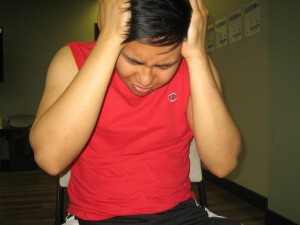Millions of individuals all over the globe suffer from frequent headaches where there is pain in the head, neck or scalp area. The doctor will categorize the headache based on the type, duration and location of pain as well as presence of the associated symptoms. There are certain forms of headaches including tension headaches and migraine headaches that can occur as a response to a trigger such as caffeine intake. Always bear in mind that caffeine can help treat these types of headache. As for cluster headaches, it only affects some individuals and does not have any known link with caffeine.
What is a cluster headache?
Cluster headaches can cause severe and abrupt pain that can persist for 15 minutes up to 3 hours. The characteristic feature for a cluster headache is that the attacks are recurrent, usually occurring at the same time every day.
The cluster headaches can affect the individual for a week, a month or even a year and then stop. This allows the individual with pain-free periods for about a month or longer. The intake of alcohol is considered as the only known dietary trigger for cluster headaches. If an individual suffers from cluster headaches, he/she can drink beverages containing caffeine without worrying of stimulating the start of a cluster attack.

Is caffeine a trigger?
Caffeine is considered as a stimulant and naturally occurs in tea, coffee and chocolate. Many manufacturers add caffeine to some medications and soft drinks. If an individual consumes large amounts of caffeine, he/she might experience symptoms of caffeine withdrawal once the level of caffeine in the body drops. The typical symptoms include irritability, anxiety, lightheadedness, rapid breathing, nausea, headache and vomiting. The consumption of too much caffeine can also trigger a tension headache or migraine headache.
Using caffeine as a treatment option
Always bear in mind that a caffeine-withdrawal headache is easy to manage and it resolves when caffeine is consumed. It is important to note that caffeine increases the absorption of analgesics such as aspirin and acetaminophen that increases the ability to manage tension and migraine headaches.
Due to this, some pain medications also contain caffeine. Individuals who use analgesics alone needs to take more medications in order to achieve relief than those who take analgesics combined with caffeine.
Treatment for cluster headaches
Even today, there is no cure for a cluster headache but some medications can help minimize the severity of the pain and frequency of the attacks. Since the severe pain occurs abruptly, medications that were taken orally could not provide enough relief. The usual form of treatment used for cluster headaches include subcutaneous administration of sumatriptan. This is a medication that acts on serotonin which constricts the blood vessels to reduce the pain. In addition, high-flow inhaled oxygen can also help reduce cluster headaches. Remember that drinking caffeinated beverages will not minimize the pain caused by a cluster headache.
